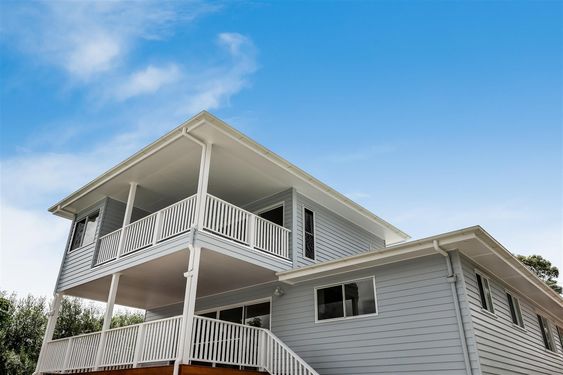Double-storey extensions are a popular way to add additional living space to your home, without having to move house. However, before embarking on a project like this, it’s important to understand the legal requirements and building regulations that apply to double-storey extensions. We’ll take a closer look at these requirements and regulations to help you navigate the process in more detail below.
Thank you for reading this post, don't forget to the best blogger Guy About Home who offers the best garden and home improvement tips! If you are a home decor and design fan, don't miss the tips on home ideas. If you are a home garden owner, then you might be interest in our complete guides to house plants!
Planning Permission
The first thing you need to consider when planning a double-storey extension is whether you need planning permission. In some cases, you may be able to build your extension under permitted development rights, which allow you to make certain types of alterations to your property without the need for planning permission. However, there are limits to what you can do under permitted development, so it’s important to check with your local planning authority to make sure your plans fall within these limits. If your plans fall outside of permitted development rights, you will need to apply for planning permission.
Building Regulations
In addition to planning permission, you will also need to comply with building regulations when building a double-storey extension. Building regulations set out minimum standards for construction and ensure that buildings are safe, accessible, and energy efficient. Some of the key areas that building regulations cover include:
· Structural stability: Your extension must be structurally sound and able to withstand the weight of the new structure.
· Fire safety: Your extension must be designed to prevent the spread of fire and provide adequate means of escape in the event of a fire.
· Ventilation: Your extension must be adequately ventilated to prevent the build-up of moisture, which can lead to mould and other problems.
· Energy efficiency: Your extension must meet minimum standards for energy efficiency, including insulation, heating, and lighting.
· Access: Your extension must be designed to be accessible to people with disabilities.
Party Wall Agreement
If you share a wall with a neighbour, you may need to enter into a party wall agreement before building your double-storey extension. A party wall agreement is a legal agreement between you and your neighbour that sets out the rights and responsibilities of each party during the construction process. It is designed to protect the interests of both parties and ensure that the construction work does not cause any damage to the shared wall.
Insurance
It’s important to make sure that you have the right insurance in place before starting any building work. This includes both building insurance and public liability insurance. Building insurance will cover you in the event of any damage to the structure of your property during the construction process, while public liability insurance will protect you in the event that someone is injured on your property.
Building a double-storey extension can be a great way to add additional living space to your home, but it’s important to understand the legal requirements and building regulations that apply to this type of project. By checking with your local planning authority, complying with building regulations, entering into a party wall agreement if necessary, and making sure you have the right insurance in place, you can help ensure that your double-storey extension is built safely and legally.




